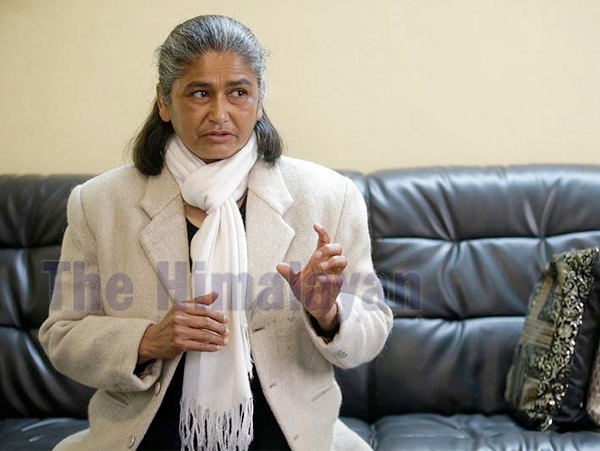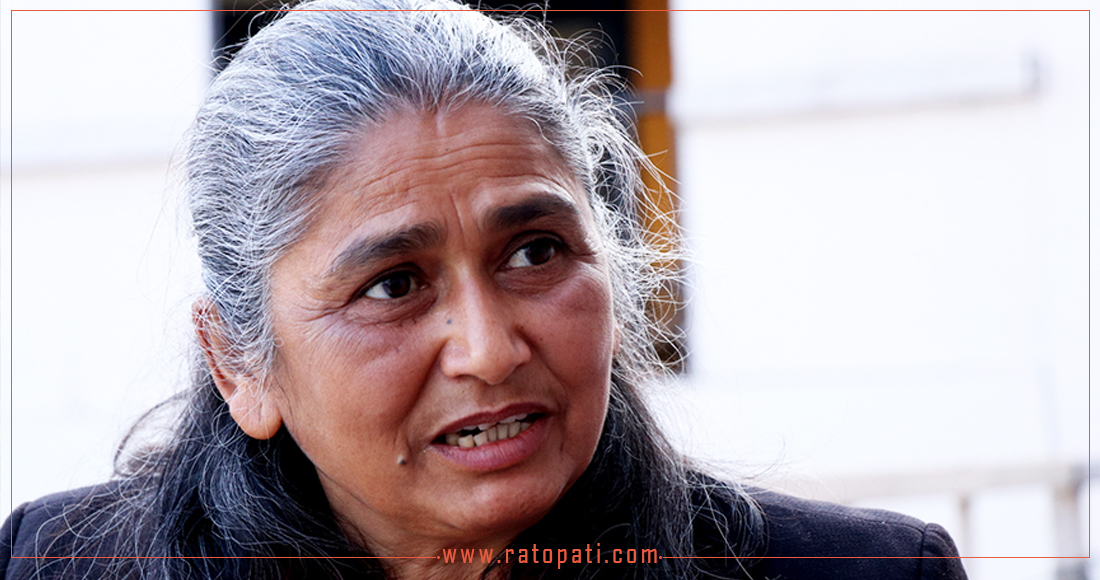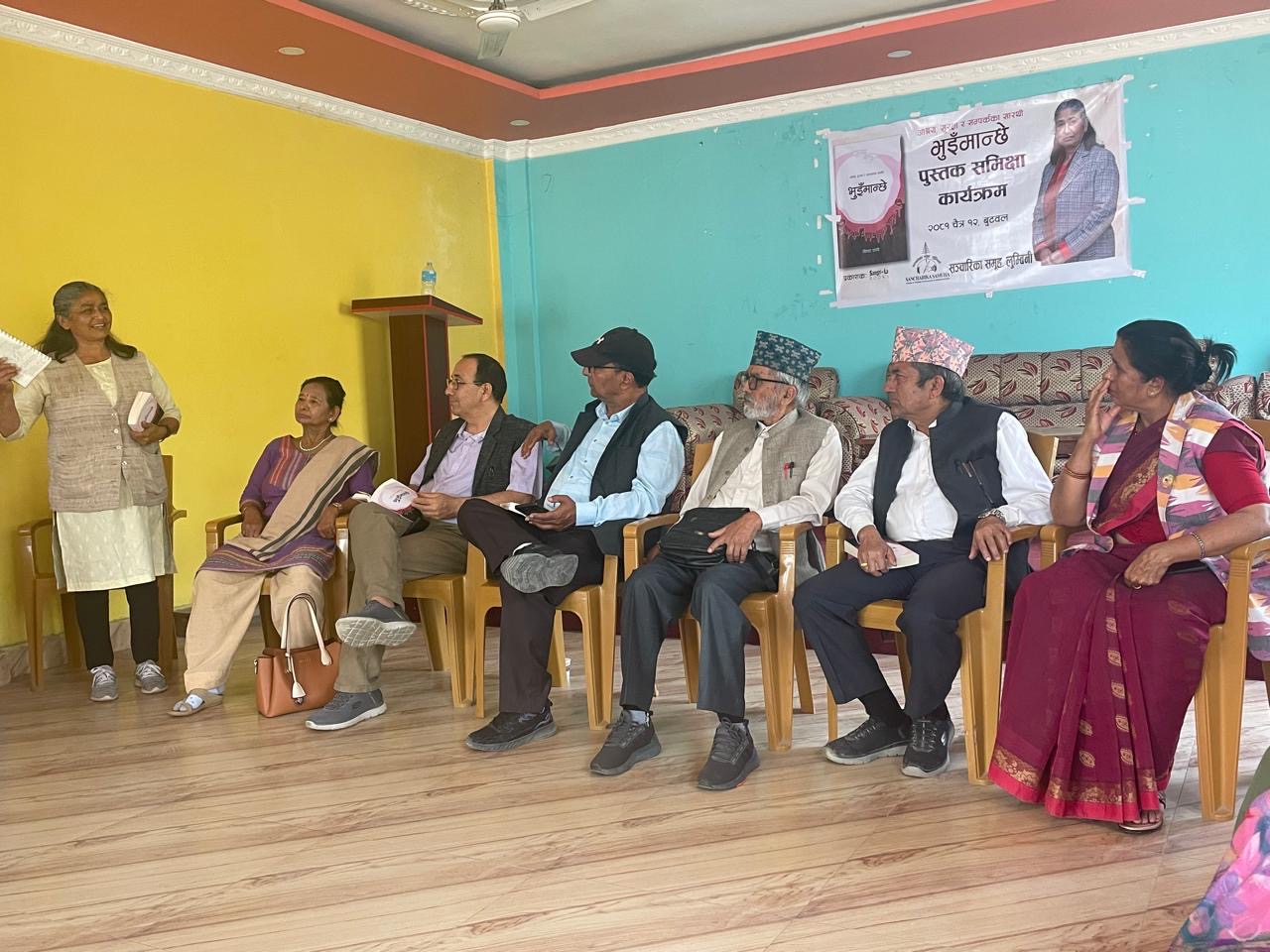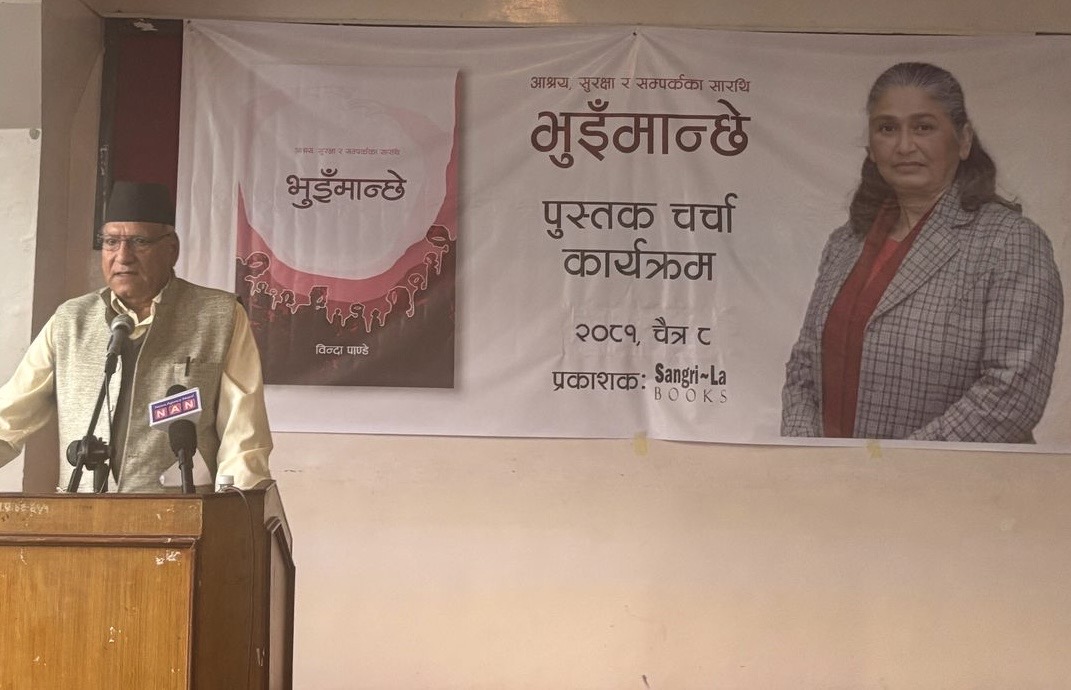अाइएलअाे गभर्निंग बढीकाे वैठककाेसाइड इभेण्टकाे रूपमा भएकाे ‘मेिकंग फेयर माइग्रेसन अ रिअालिटी-च्यालेन्ज एण्ड अपर्चुनिटी मा प्रस्तुत कमेण्ट/इण्टरभेन्सन
A High Level Interactive Dialogue
Making fair migration a reality: challenges and opportunities
Room II
1.15pm–‐2.45pm
Honorable DG of ILO,
Fellow panelists, colleagues, ladies and gentlemen,
Namaste and very good afternoon!
Let me thank the organisers for the invitation to be part of this panel. We very much welcome this discussion on the challenges and opportunities for making fair migration a reality.
I would like to acknowledge and welcome the leading role play by DG of ILO in terms of protection of migrant right in the country of destination and origin.
Q- What type of partnership and institutional cooperation is needed in different regions and across regions to coherently address the challenges of labour migration and migrant’s effective integration into the labour markets in a way that is beneficial for all concerned?
Migration today is key to the viability of labour markets worldwide and governing migration must be about protection of people, about decent work for all, and about justice for working people.
The trade union movement has for some time been advocating that migration debates, policies, and agreements need to be firmly rooted in the international normative human rights framework and we have also lobbied for serious changes to be made to the architecture of the global governance of migration.
Labour mobility agreements are increasingly being negotiated bilaterally or regionally. They often ignore the normative framework and facilitate discrimination and abuse of the rights of migrant workers. Governments often fail to consult with the social partners.
Facing this situation, what needs to be done in our view are:
- The international human and labour rights framework governing migration must underpin bilateral and regional negotiations on labour mobility.
- Both countries of destination and countries of origin must ratify ILO Conventions on migration (97 & 143), domestic workers’ Convention (189) as well as the Convention 29 and its protocol and UN Convention on migrant workers and their families of 1990, and transpose these into national legal frameworks as well as within regional economic communities.
- Equal treatment needs to be guaranteed as well as the right to freedom of association and collective bargaining for migrant workers.
- It is crucial for the social partners to be present and engaged in these bilateral and regional negotiations, through formal social dialogue and national tripartite consultation processes.
- Labour inspection covering migrant workers must be reinforced in line with ILO Convention 81. Inspectorates must be better trained in the detection of forced labour and communicate in the languages spoken by migrant workers. Migrant workers must have access to effective complaints mechanisms in their own language. Labour inspection must be fully ‘fire-walled’ from immigration control.
- Primary responsibility for the governance and administration of national labour migration plans and policies should shift from interior or home affairs ministries to labour ministries.
- Regional cooperation on matters such as recruitment by private employment agencies, wages and working conditions, based on UN and ILO Conventions, can help to avoid a “race to the bottom” among origin countries of migrant labour.
- Adopt measures to extend social security coverage and portability to migrant workers in both origin and destination countries. This should be supported by wider ratification of ILO Convention 102 on social security and Recommendation 202 on Social Protection Floors.
- And finally trade unions in the region of destination and region of origin need to cooperate for the protection of migrant workers’ rights
Q- What role should be envisaged for the social partners and governments in order to improve labour market integration, skills matching, and enhanced protection of migrant workers’ rights?
It is clear that labour migration will continue to grow, both because of push and pull factors. It is also clear that skills matching will be an important issue both for countries of origin and destination. At the same time, international recruitment of migrant workers is a big concern due to multiple abuses.
So far there is little apparent political will to regulate, license and monitor the operations of these agencies. Also little effort is made to really stamp out the serious abuses to migrant workers’ rights that are rife along the labour supply chain. One of the main challenges therefore is to eliminate abuses while improving labour matching and skills.
Responding to these realities, the following action should be taken into consideration in our view:
- Tripartite constituents in the countries of destination & origin should be part of formulating policies and laws regarding migrant workers.
- No migrant workers should be employed in sectors that are not covered by labor law in the countries of destination.
- Tackle the serious structural problems in the labour recruitment market; for example by establishing joint liability in the law for recruiters in countries of origin (Philippines); implementing national legislation in destination countries that clearly places responsibility for violations on the user/employer at the end of the labour supply chain; establishing obligatory licensing mechanisms for recruitment agencies, subject to tripartite review and the disclosure of abuses.
- Stop the aggressive promotion of short term, temporary, and seasonal migration regimes designed to restrict rights to settlement, labour and social protection, rather than to effectively address labour market needs. Such schemes have increased the vulnerability of migrant workers.
- There is a great concern with the growing number of migrants that lose their lives in crossing the Mediterranean Sea. In this respect we regret the end of the Italian Mare Nostrum initiative, which had some good results. We would like to know if this initiative could be reinstated or could be transformed into a Europe wide initiative.
- Reduce barriers to labour and skills movement to reflect actual and projected labour market needs – while taking into account human capital requirements in countries of origin.
- Coordinate data gathering on migration and labour market needs among national institutions concerned. This could link to relevant international labour market and migration databases and indicators.
Thank you very much!





